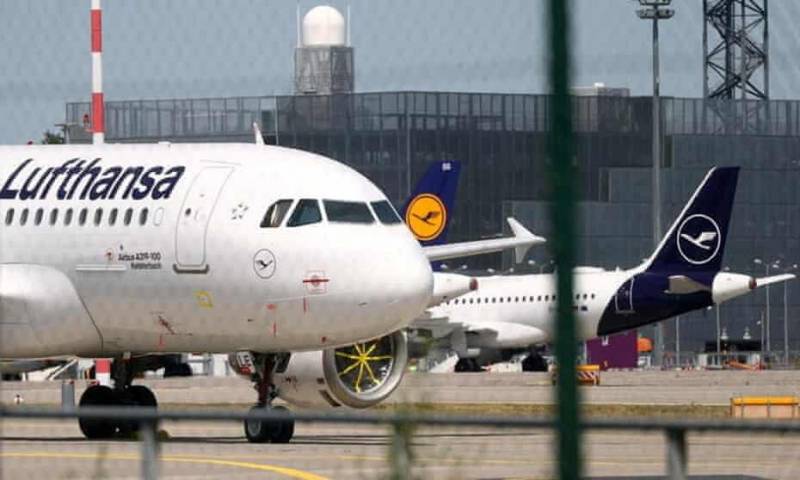Christmas travel from the UK to large parts of Europe is being limited as more countries impose travel restrictions in an attempt to curb the spread of the Omicron variant.
Germany joined France in banning most travellers from Britain from Sunday evening while Austria, Greece, Italy, Portugal and Ireland are all requiring international arrivals to produce negative pre-departure tests.
Tui was forced to cancel all river cruises due to depart this month after Berlin announced that only German citizens and residents may travel to Germany from the UK from last night (Sunday).
“As a result, we’ve unfortunately had to cancel all Tui River Cruises sailings due to depart in December,” the company said.
“We will be proactively contacting all impacted customers in departure date order to discuss their options.”
Permitted travellers arriving in Germany must quarantine at home for 14 days irrespective of their vaccination status.
The Netherlands entered a full lockdown with the closure of all non-essential businesses such as bars and restaurants and strict restrictions on socialising for Christmas.
Reports also emerged over the weekend suggesting the European Union may consider imposing PCR tests on all travellers from outside the bloc.
Which? Travel editor Rory Boland warned: “The timing of these sudden changes to restrictions for travel to Germany will cause chaos for those looking to visit family and friends this Christmas.
“International travel remains unpredictable and other countries could still take measures at short notice, such as Germany’s decision to ban UK tourists.
“In many cases, there’s no automatic right to a refund if restrictions change overseas, so it’s absolutely essential people book with a provider that includes the flexibility to rebook if it’s impractical for your trip to go ahead.”
The head of Eurostar Jacques Damas criticised the decision to close French borders last Thursday.
He told The Telegraph: “We cannot say that it is helpful from the Eurostar perspective. It is very hard to endorse as far as the business situation is concerned. We have thousands of passengers [that] have been let down with very short notice.
“The price is being paid by our customers. They are cancelling all their Christmas plans.”
Ian Bell, head of travel and tourism at audit, tax and consulting firm RSM, predicted that the peak January booking season is likely to “slip a month or two” as consumers absorb the latest government requirements, and they await the fall out of the next review of travel testing measures in early January to consider their options.
“This is likely to lead to continued shorter lead times and the knock-on impact of reduced cashflow and forecasting uncertainty for travel businesses,” he said.
Bell added: “Crunch point for some operators will be the end of March when they need demonstrate viability to renew Atol licenses, and sadly many won’t be able to do this.
“After a difficult trading period; no Government support since the furlough scheme ending; extra restrictions undermining consumer confidence and bookings; and cancellations and subsequent refunds all hitting cashflow, many businesses will hit breaking point. This could lead to a wave of business distress across the sector at the end of Q1 next year.
“The real fear is a prominent travel brand entering administration and the repercussions of this across the wider sector on business closures, high unemployment and longer-term pressure on international connectivity at a time when the UK wants to be more outward focused following Brexit.
“What is desperately needed is acknowledgement from the UK government of the knock-on effect that policy changes are having on the travel sector and a suite of tailored measures from covering the cost of testing to industry specific grants to support travel businesses now.
“This will allow them the opportunity to survive long enough to bounce back once measures are lifted.”
Scottish Passenger Agents’ Association vice president Mike Tibbert said: “It’s like watching an approaching avalanche and being unable to outrun it.
“Travel agents face rebookings, cancellations and refunds again and yet again are working without income and on negative revenue as they have to do this work for no recompense and must pay credit card refund charges too. Travel agents receive no income until their clients actually travel. No travel means no income.
“Our members are entering their third year without revenue, having had to refund much of their 2019 income when the pandemic meant travellers who booked a 2020 holiday in 2019 were barred from travel.”
SOURCe : travelweekly




